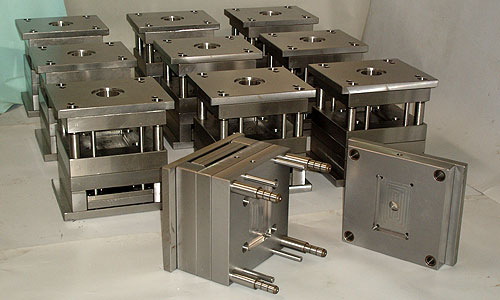Manufacturing is a cornerstone of South Korea's economy, with industries ranging from electronics to automotive production. At the heart of this success lies a critical component: mold steel. This specialized material not only boosts the efficiency of manufacturing processes but also enhances product quality. Understanding the importance of mold steel can help manufacturers in South Korea improve their operations significantly.
What is Mold Steel?
Mold steel, often referred to as tool steel, is a type of steel specifically designed for manufacturing molds for various applications. It possesses several characteristics that make it ideal for producing high-quality molds, including excellent hardness, wear resistance, and dimensional stability. These properties ensure that the molds can withstand the rigors of production while maintaining their shape and precision.
The Importance of Mold Steel in Manufacturing
In the fast-paced realm of manufacturing, especially within South Korea’s competitive market, the choice of materials directly impacts operational efficiency. High-quality mold steel enhances the performance of molds, thereby improving production processes and overall product quality.
- Durability: Mold steel offers superior durability, reducing the frequency of mold replacements and maintenance.
- Precision: The accurate shaping and finishing capabilities of mold steel lead to higher fidelity in manufactured products.
- Cost Efficiency: While the initial investment may be higher, the longevity and reduced downtime associated with quality mold steel lead to lower long-term costs.
Types of Mold Steel Used in South Korea
South Korea's manufacturing sector utilizes several types of mold steel, each offering distinct advantages based on specific production requirements. Some of the most common varieties include:
- P20 Steel: This is one of the most commonly used mold steels, known for its versatility in applications such as blow molds and injection molds.
- S7 Steel: Recognized for its toughness, S7 is often used for reinforced molds required in high-stress manufacturing processes.
- A2 and D2 Steels: These are air-hardening steels known for their excellent wear resistance and dimensional stability, making them ideal for precision molds.
The Role of Innovation in Mold Steel Manufacturing
Innovation plays a crucial role in improving the characteristics of mold steel. Continuous advancements in metallurgy and processing technologies have led to the development of newer grades that enhance performance. For instance, the introduction of micro-alloyed tool steels has revolutionized mold manufacturing by offering superior strength and hardness.
Moreover, South Korean manufacturers are increasingly investing in research and development to tailor mold steel properties to meet specific needs, enhancing their global competitiveness.
Frequently Asked Questions (FAQ)
1. Why is mold steel more critical in South Korea compared to other materials?
The competitive landscape of South Korea's manufacturing industry necessitates superior quality and efficiency, making mold steel a preferred choice due to its durability and precision.
2. How does mold steel affect production timelines?
The use of high-quality mold steel minimizes downtime due to breakage or excessive wear, enabling faster production timelines and enhanced output.
3. Is mold steel recyclable?
Yes, many grades of mold steel can be recycled, making it an environmentally friendly option as it reduces waste in manufacturing processes.
4. What are the challenges in sourcing mold steel in South Korea?
While the demand for mold steel is high, challenges include fluctuating prices of raw materials, leading to potential cost increases for manufacturers.
5. How does mold steel contribute to product quality?
Mold steel ensures that molds produce consistent, high-precision components, leading to improved overall product quality and customer satisfaction.
As South Korea continues to innovate and evolve in the realm of manufacturing, mold steel remains a pivotal component in the quest for efficiency and quality. By harnessing the benefits of advanced mold steel, manufacturers can secure their place as leaders in the global market.

